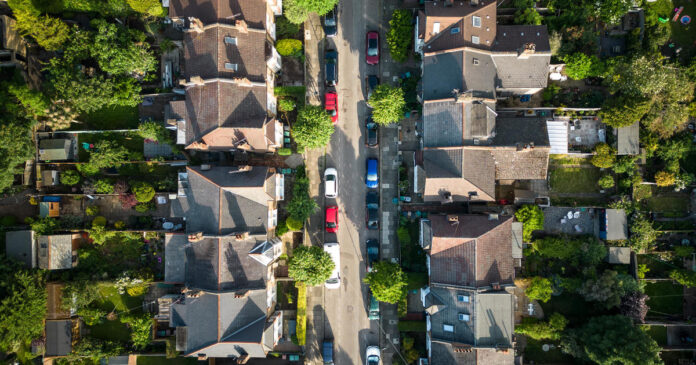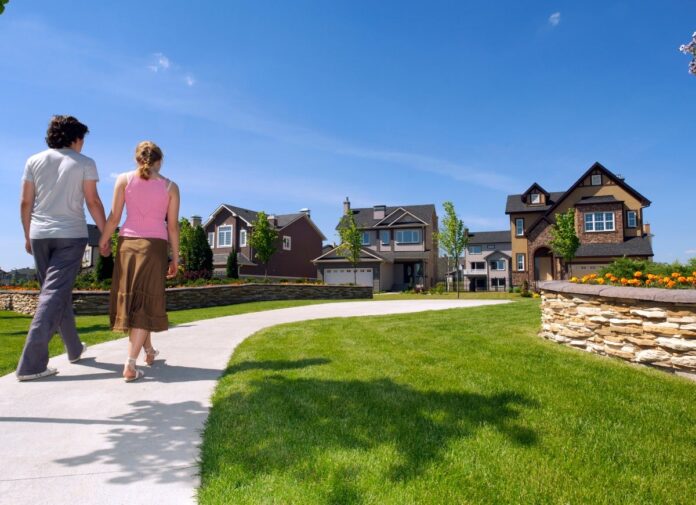Whether you’re a first-time homebuyer looking for their first property or a more experienced investor in the market for a great deal, location is one of the most important aspects of your real estate search. Not only does decide on the right neighborhood mean finding an area with less crime and better schools, but it also means selecting a locale that may appreciate more in value—which means that you’ll have more equity in your home when you decide to sell.
Choosing a good neighborhood should involve much more than just searching for listings within your budget. You should think long-term, make sure that area meets your current needs and those of any potential family members, and be sure to take into consideration projected or current local developments that could change the value or tone of a given area.
Working with a Real Estate Agent

If you’re in the market for a home, working with a real estate agent can prove to be invaluable. A realtor will know their local communities, have access to coming soon listings and important market data and provide valuable advice based on your individual needs. They can help you evaluate potential neighborhoods from schools to crime statistics and guide you through the entire home-buying process.
When choosing an agent, it’s important to feel that they are knowledgeable about the area and process of house buying in general, as well as someone that you have chemistry with so they can understand your needs. Look into key factors like experience, reputation, education, and specialization. It is also helpful to ask friends or family members who have recently gone through the process of house buying if they could recommend an agent or talk to past clients that might be willing to share their stories about working with a particular agent.
Once your agent is chosen it’s important for them to dig deep into understanding exactly what type of home you are looking for which can include location, commute time details of features necessary or amenities preferred as well as budget range. Your real estate agent should then be able to create a searchable database from this information so that only listings fitting these criteria appear when conducting searches.
Your real estate agent’s main job is making sure all those little details about potential homes are adequate such as inspecting legal documents making sure taxes are paid up-to-date etc., and finding out relevant information such as research if there are any repair works needed due to some disaster happened in past years or proceedings any lawsuit related activity happened recently around the neighborhood, etc.
The right real estate agent makes all the difference when searching for a new home; trustworthiness coupled with knowledge will guarantee success throughout your endeavor!
Factors to Consider When Choosing a Neighborhood
When it comes to making an informed decision about buying a house in a certain neighborhood, various factors should be taken into account. The following list outlines some of the important criteria to consider when determining whether or not a neighborhood is suitable for you and your family:
- Crime Rate: Checking the crime rate of an area is an important step as it can help you determine whether or not the area is safe for you and your family. Researching crime statistics in any particular neighborhood can make a big difference in your decision-making process.
- Schools: Look at nearby schools, including the quality of education they provide, class sizes, student-teacher ratios, etc. Ideally, you want to choose an area that provides your children with a good education and helps them build strong character by fostering healthy relationships with peers and educators alike.
- Commuting: If you are looking at properties close to where you work, commuting time needs to be taken into consideration. This is especially true if public transportation options are limited or nonexistent, which means added travel expenses and more time spent away from home during rush hour traffic times.
- Amenities: Consider how close amenities are to the home’s location such as grocery stores, gas stations, shopping centers, and entertainment venues like movie theaters and parks. This can create convenience for daily living needs without having to always drive long distances somewhere else for them.
- Local Businesses: It can be just as important to look into local businesses that may bring revenue or employment opportunities close by down the road if interested in investing or finding jobs nearby one day yourself. Small businesses often thrive on local support that residents may offer so it pays off to take time here researching this factor when choosing a good neighborhood as well.
Analyzing the Cost of Living

When choosing a neighborhood to purchase a house in, it is important to take into account the cost of living and overall affordability of the area. There are several key components to consider when assessing the cost of living in a certain area.
The first component to pay close attention to is housing costs. Housing costs can vary greatly from one neighborhood to another, as well as from city center locations and suburbs – where wages may be lower but housing costs also tend to be lower on average. It is also important to recognize whether property taxes are going up or down in any given neighborhood. To best understand how that could affect your purchase decision, you may want to consult with a real estate agent or accountant for help in crunching the numbers.
In addition, make sure to look at the income necessary for purchasing a house in that area versus what you make annually. Generally, you’ll want your mortgage payment (including additional bills such as property taxes) not to exceed 28 percent of your gross monthly income. Keeping this calculation in mind can ensure that purchasing doesn’t put additional strain on other areas of your budget.
Another cost factor may include transportation expenses such as fuel costs if you have a car or public transportation if it’s available in the area where you’re considering purchases. In addition, consider how much job availability there is nearby, including commute time if jobs aren’t within walking distance or even biking distance. In most cases, it will be affordable but still worth knowing how far away you might need to travel for essential services or employment opportunities and whether it offers any savings over relocating closer by.
Home Inspection and Appraisal
An appraisal assesses the value of a given property by taking into account factors such as nearby homes and prices, local Tax rates, neighborhood amenities, and past home sales. A licensed appraiser will usually have special equipment to measure the site topography and analyze any environmental risks. Most lenders will require an appraisal before approving a loan, so no matter what kind of loan you’re applying for, make sure you factor in the cost of an appraisal when creating your budget.

Conclusion
There are a number of factors to consider when choosing a good neighborhood. The first is safety. You’ll want to choose a neighborhood that has low crime rates and is well-lit. Another important factor is amenities. Choose a neighborhood with nearby parks, grocery stores, and other conveniences. You’ll also want to consider the school district when choosing a neighborhood, as this can have a big impact on your child’s education. Finally, the cost of living is an important consideration. Make sure you can afford the homes in the neighborhood you’re considering.




